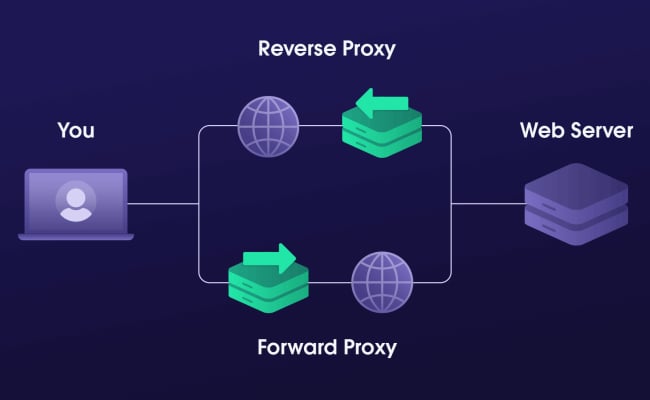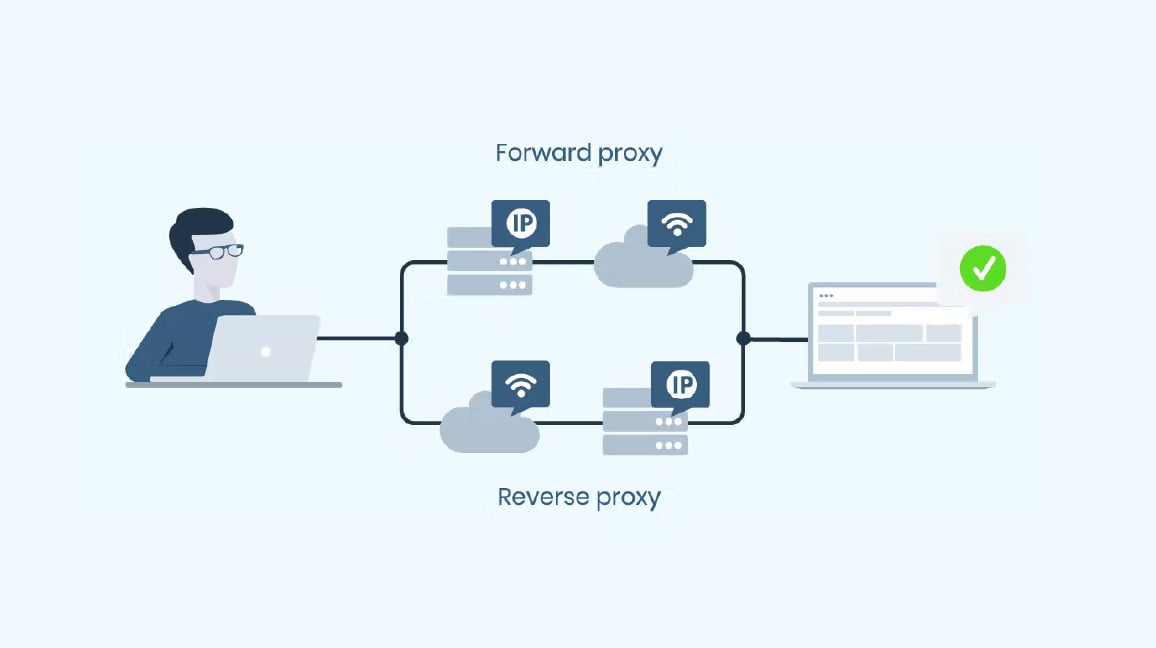Forward Proxy vs Reverse Proxy: the Differences
In general, proxies are intermediaries between a user and a web server. As you may know, there are various types of proxies used for different purposes. In this article, we’ll explain the differences between the forward proxy vs reverse proxy servers.
First, let’s make sure that we’re on the same page by understanding what a forward and reverse proxy is.
What is a forward proxy?
A forward proxy is what most people simply call ‘a proxy‘. You send a connection request to it, and the forward proxy retrieves data from the internet. It usually lets clients access an otherwise firewall-restricted website.
A forward proxy can help you bypass a network block. For example, if your network blocks Instagram, you can forego the block with a proxy. Connecting to a forward proxy instead of Instagram’s services directly with your original IP will allow you to get the information without alerting the firewall.
Forward proxies also provide anonymity. An anonymous forward proxy will hide your original IP address from any connection target.

What is a reverse proxy?
A reverse proxy is a proxy server that acts as a gateway to a web server. When you send requests to a web server that makes use of it, your requests do not go to the web server; they will go to the reverse proxy which will then determine if it should route it to the web server or block it.
This means that with a reverse proxy in place, you never get to have direct communication with the web server using it. You wouldn’t even though that it is there as it will appear to you like the actual server. See them as some kind of wrapper around a web server or a cluster of servers. They can protect it against attacks and provide better web performance by way of load balancing and caching.
Forward proxy vs reverse proxy: the differences
The key difference between a forward proxy and a reverse proxy is that the first one is used by a client, e.g., a user inside a private network, while the second one is used by an internet server. A forward proxy can be positioned in the private network together with the user, or it can be online.
Also, these two types of proxies have another difference, and it’s in their usage. We’ve already singled out some of the most common use cases of each proxy type. Forward proxies are utilized for privacy reasons, accessing geo-restricted content, web scraping, and much more. Web servers use reverse proxies to avoid overloading, and add additional safety layers from malicious entities, caching, SSL encryption, etc. Therefore, these proxies are used for entirely different tasks, which is the main difference between them.
Which one should I use for my business?
It depends on your business and particular needs. Forward proxies are great for simple, straightforward content requests such as obtaining government records from a digital archive.
A reverse proxy could be more useful to a company that generates data independently. They might want to keep some of that data open to the public while other sections may be highly classified, proprietary data about the essence of their technology.

Conclusion
The concept of proxy was introduced to protect your servers from unsafe or malicious sites. With the help of a proxy server, you can select requests and block the ones you find suspicious. Also, with the help of these proxies, you can cache responses, and log and monitor every single request sent by the client.
Forward proxies are most used for privacy and security when browsing the internet, accessing geo-restricted content, and web scraping. Reverse proxies are important for websites with a large number of visitors as they help avoid overloading and are a perfect fit for caching content and SSL encryption.
The main difference between a forward proxy and a reverse proxy is in their purpose. As they are utilized for different tasks, they cannot be considered the same proxies.